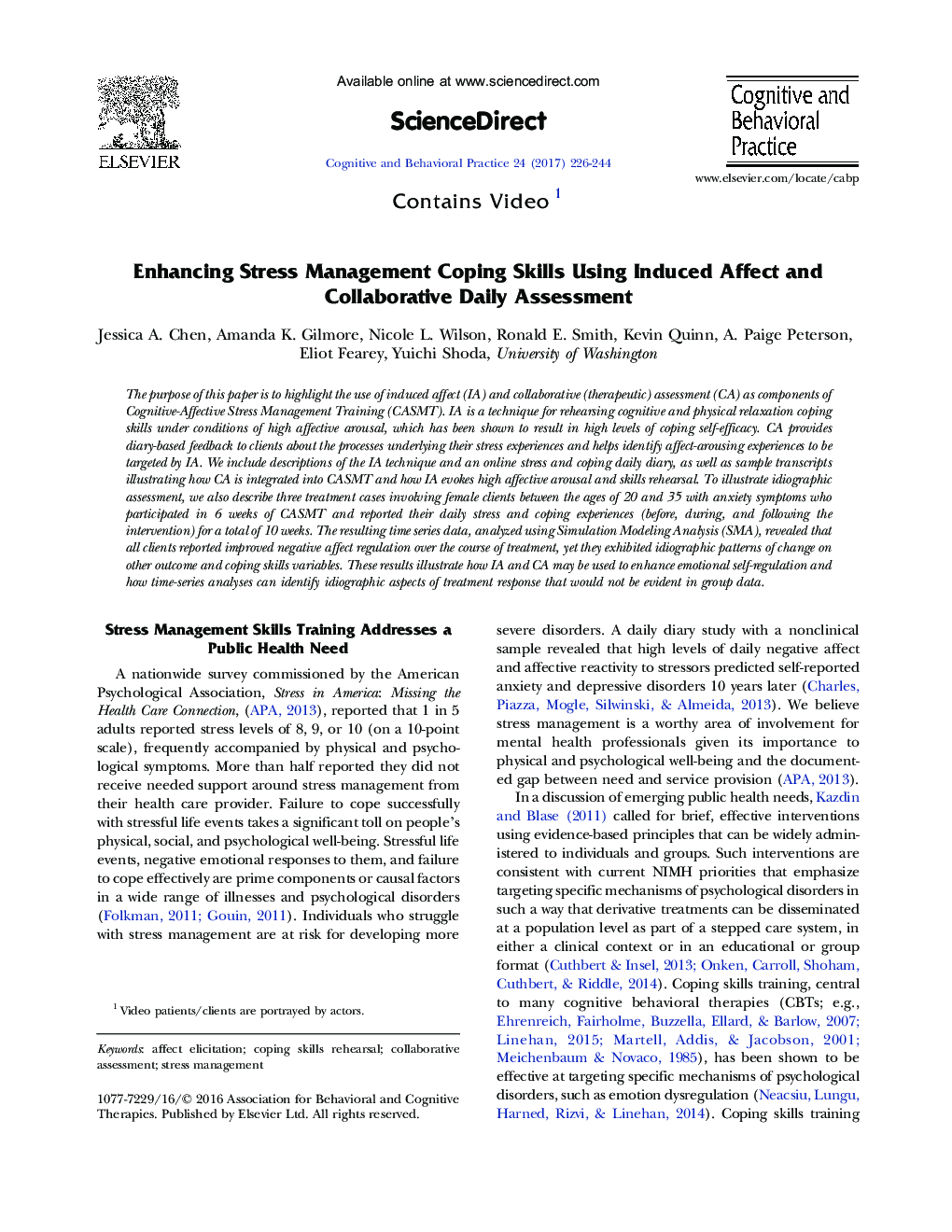| Article ID | Journal | Published Year | Pages | File Type |
|---|---|---|---|---|
| 5038601 | Cognitive and Behavioral Practice | 2017 | 19 Pages |
â¢We review two components of Cognitive-Affective Stress Management Training (CASMT).â¢Induced affect (IA) is a technique that permits in-session coping skills rehearsal.â¢IA may improve perceived emotion regulation and skills generalization.â¢Collaborative assessment (CA) via an online daily diary informs the therapy.â¢CA may help with coping skills generalization and outcome tracking.
The purpose of this paper is to highlight the use of induced affect (IA) and collaborative (therapeutic) assessment (CA) as components of Cognitive-Affective Stress Management Training (CASMT). IA is a technique for rehearsing cognitive and physical relaxation coping skills under conditions of high affective arousal, which has been shown to result in high levels of coping self-efficacy. CA provides diary-based feedback to clients about the processes underlying their stress experiences and helps identify affect-arousing experiences to be targeted by IA. We include descriptions of the IA technique and an online stress and coping daily diary, as well as sample transcripts illustrating how CA is integrated into CASMT and how IA evokes high affective arousal and skills rehearsal. To illustrate idiographic assessment, we also describe three treatment cases involving female clients between the ages of 20 and 35 with anxiety symptoms who participated in 6 weeks of CASMT and reported their daily stress and coping experiences (before, during, and following the intervention) for a total of 10 weeks. The resulting time series data, analyzed using Simulation Modeling Analysis (SMA), revealed that all clients reported improved negative affect regulation over the course of treatment, yet they exhibited idiographic patterns of change on other outcome and coping skills variables. These results illustrate how IA and CA may be used to enhance emotional self-regulation and how time-series analyses can identify idiographic aspects of treatment response that would not be evident in group data.
